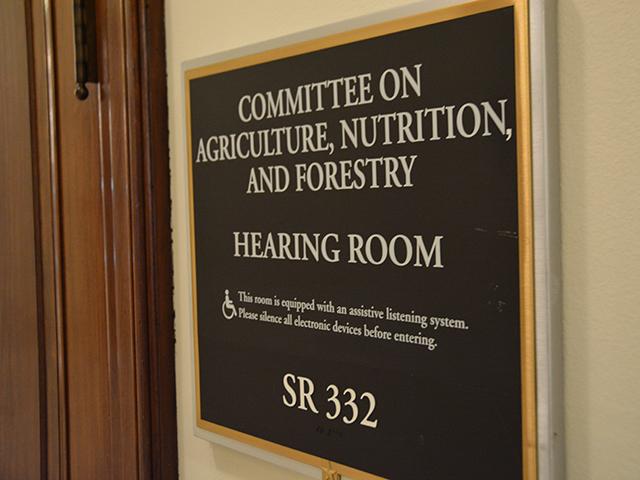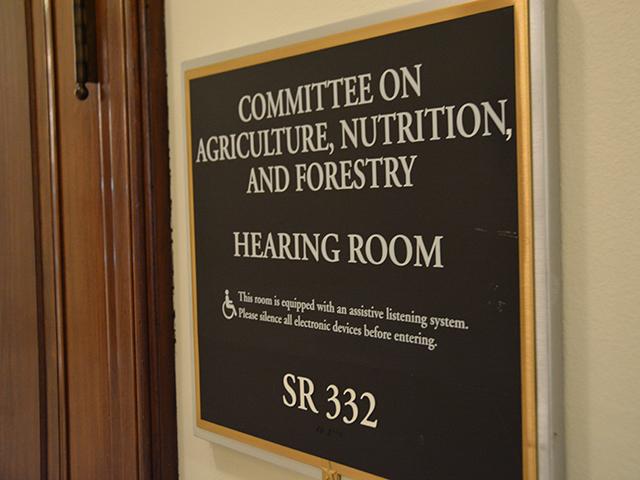Ag Policy Blog
Senators Introduce Bills on Payment Limits, Whole Farm Insurance for Smaller Farms
Senators are dropping a lot of proposals right now tied to the next farm bill, including efforts to tighten payment limits and improve insurance for smaller farms.
Sens Sherrod Brown, D-Ohio, and Chuck Grassley, R-Iowa, on Thursday introduced the "Farm Program Integrity Act," a bill they stated would close loopholes around farm-program payment limits and the definition of "actively engaged in farming."
Under the bill, the current payment cap of $125,000 for an individual would remain, but the bill adds a hard cap of $250,000 for any one farm operation. Within that cap, marking loan gains and loan deficiency payments would be capped at $75,000 per operation.
Other provisions of the bill:
-Removes exemptions on payment limits for farms organized as general partnerships. A lot of farms restructured as general partnerships to get around limits for corporate farms going back to the late 1980s.
-End a special provision that allows peanut farmers to double the payment limits.
-Revises the actively engaged rule. The rule requires 1,000 hours of labor or an unquantified amount of management for people to collect farm payments. The bill would require 1,000 hours of labor and management in any combination -- such as 50% labor and 50% management time. The bill would allow family members to qualify as actively engaged and remain eligible for payments.
The senators stated current law allows too many loopholes for "mega farms" to collect large farm-program payments then outbid others for rental ground. Brown and Grassley noted 10% of farms receive 70% of farm-program payments.
P[L1] D[0x0] M[300x250] OOP[F] ADUNIT[] T[]
"It isn't right to send bloated farm payments to people who are more familiar with an office chair than a tractor seat," Grassley said. "This bill brings honesty to the farm payment system and prioritizes farming families over mega farms. Hard-earned tax dollars should only be sent to hard-working farmers – those with calluses on their hands and dirt under their fingernails."
Brown added, "For years we've seen big farms get bigger while small and mid-sized family farmers in Ohio get squeezed. Too often, farm program payments have gone to producers who do not need the support, or to people who aren't even involved in farming. With this commonsense bill we can ensure assistance is directed toward working Ohio farmers."
See, https://www.grassley.senate.gov/…
REVISING WHOLE FARM INSURANCE FOR SMALL FARMERS
Brown also is part of a Democratic-led bill on whole farm revenue insurance with Sens. Cory Booker of New Jersey, John Fetterman of Pennsylvania, Tina Smith of Minnesota, Raphael Warnock of Georgia and Peter Welch of Vermont.
The bill, "Whole Farm Revenue Protection Program (WFRP) Improvement Act of 2023," would help smaller and mid-sized farms better access crop insurance. The senators stated smaller farmers, beginning farmers, more diversified farmers and those who grow specialty crops are less likely to enroll in crop insurance.
"This leaves the next generation of farmers and those who feed their local communities without an effective or adequate safety net to protect against the many risks of farming, including volatile markets, worsening floods, droughts, and frosts," the senators stated.
The bill would authorize the Federal Crop Insurance Corp. to study more crop insurance participation by farmers who sell in local or regional markets. It would also seek to reduce the paperwork requirements under whole-farm insurance. The bill also makes adjustments to gross revenue requirements and how price and production expectations are calculated when claims are filed. The bill also would compensate crop insurance agents "appropriately" for whole-farm revenue sales, "overcoming a key barrier for agents who are reluctant or refuse to sell WFRP policies."
Welch pointed to the recent floods in his state. "Vermont farms were hit hard by catastrophic storms and flooding in early July, with many suffering significant crop and livestock losses. As we recover, it's critical that we not only rebuild, but also help our farms become more resilient to future disasters," Welch said. "The Whole Farm Revenue Protection (WFRP) Program can boost farms' resilience by helping farmers insure the revenue of their entire production and providing valuable support for crop diversification. The Whole Farm Revenue Protection Program Improvement Act of 2023 will streamline the WFRP's application process, making it easier for Vermont farms to protect their crops and livestock and helping to build a more resilient agricultural sector in Vermont and across the U.S. I'm proud to join my colleagues to introduce this important, common-sense legislation."
One of the problems producers have cited with whole-farm insurance is the volume of paperwork to enroll in it and requirements for periodic updates throughout the growing season.
The bill has several backers from groups that advocate for smaller farm operations.
See, https://www.brown.senate.gov/…
Chris Clayton can be reached at Chris.Clayton@dtn.com
Follow him on Twitter @ChrisClaytonDTN
(c) Copyright 2023 DTN, LLC. All rights reserved.






Comments
To comment, please Log In or Join our Community .